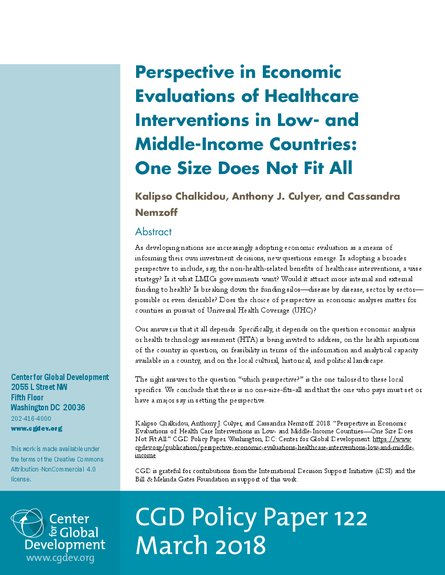
As developing nations are increasingly adopting economic evaluation as a means of informing their own investment decisions, new questions emerge. Is adopting a broader perspective to include, say, the non-health-related benefits of healthcare interventions, a wise strategy? Is it what LMICs governments want? Would it attract more internal and external funding to health? Is breaking down the funding silos—disease by disease, sector by sector—possible or even desirable? Does the choice of perspective in economic analyses matter for countries in pursuit of Universal Health Coverage (UHC)?
Our answer is that it all depends. Specifically, it depends on the question economic analysis or health technology assessment (HTA) is being invited to address, on the health aspirations of the country in question, on feasibility in terms of the information and analytical capacity available in a country, and on the local cultural, historical, and political landscape.
The right answer to the question “which perspective?” is the one tailored to these local specifics. We conclude that there is no one-size-fits-all and that the one who pays must set or have a major say in setting the perspective.